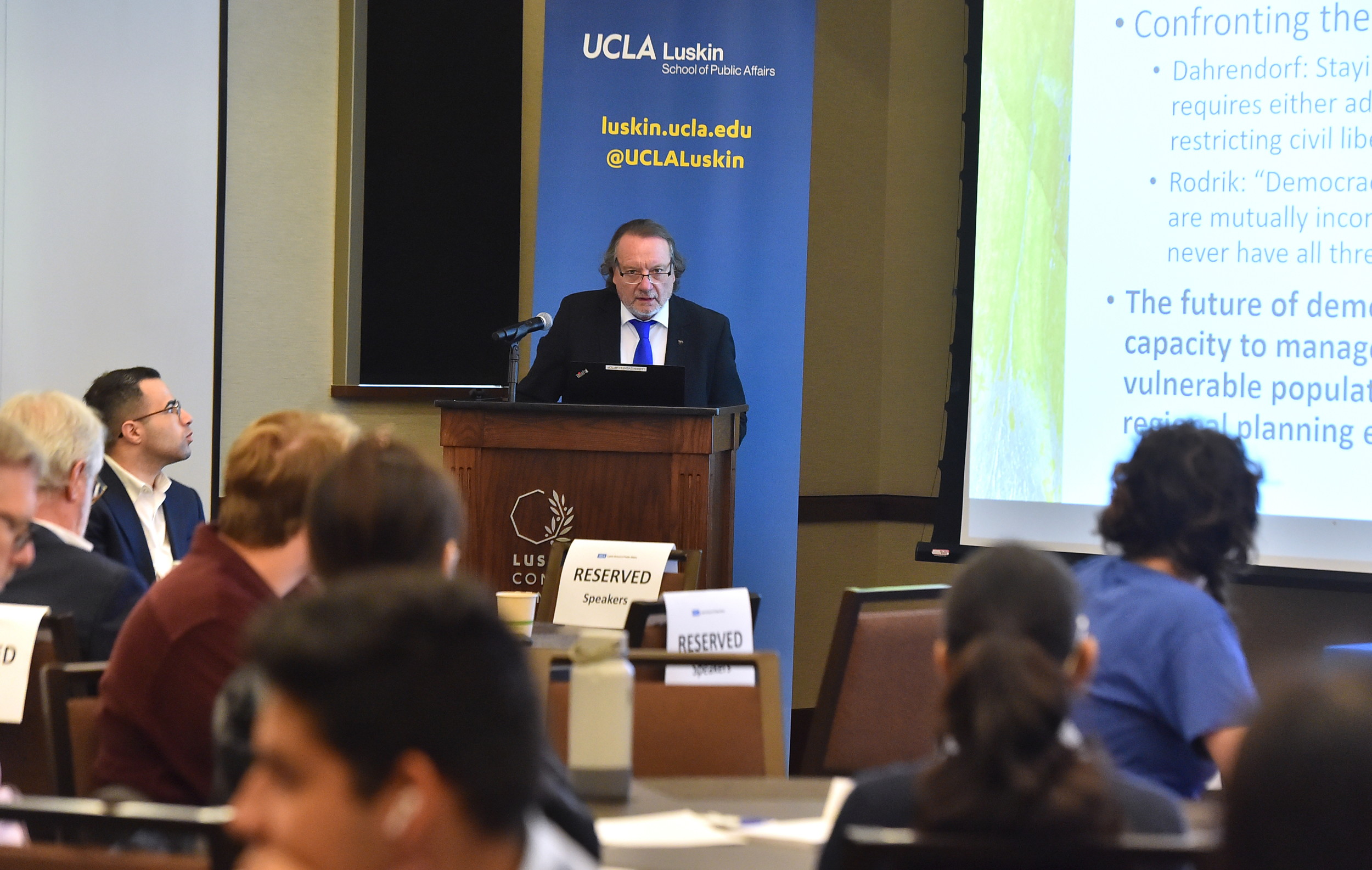Most of the world is living under eroding democratic accountability
The world's 12 most populous countries saw declines in a global index measuring democratic accountability. This democratic backsliding could turn into a slippery slope leading to more deterioration, researchers warn.
LOS ANGELES, UNITED STATES - Newsaktuell - 16 May 2024 - An overwhelming majority of the world's people live in countries that lost ground on measurable benchmarks of democratic accountability from 2010-2021, according to a global index released Wednesday by an international group of governance researchers.
The world's 12 most populous countries, with 4.77 billion people — nearly 59 percent of humanity — all lost ground in the Democratic Accountability Index, a component of the 2024 Berggruen Governance Index (BGI).
Among the 12 biggest countries, India, China, the United States, Indonesia, Brazil, Bangladesh, Russia and the Philippines all saw large declines of 8 to 18 points on the 100-point index. Pakistan, Nigeria, Mexico and Japan had relatively marginal declines of 2 to 4 points.
Across all 145 countries ranked in the democracy index, the average score declined from 67 out of 100 points in 2010 to 65 points in 2021. The global average had risen from 64 to 67 points during 2000-2010.
«We know that small declines in democratic accountability can lead to further declines,» said BGI principal investigator Helmut Anheier, sociologist at the Luskin School of Public Affairs at the University of California Los Angeles (UCLA) and former president of the Hertie School, a German university. «You can get on a slippery slope — it's called democratic backsliding.»
Ethiopia, the 13th-biggest country with 107 million people, rallied on the democracy index, albeit from a low starting point, from 36 to 49 points. It is alone among the world's 25 most populous countries to improve its democratic accountability score from 2010-2021.
In a year that is likely to see record voter participation in elections worldwide, the 96-page report, titled «Democracy Challenged», was issued by the Luskin School, which collaborated on the project with the Berggruen Institute, a think tank headquartered in Los Angeles, and the Berlin-based Hertie School.
The Democratic Accountability Index weighs the influence of citizens and institutions on governments, while the full report examines democratic accountability alongside two further indices on public goods and state capacity, with the goal to «better understand why some countries fare better than others at providing a high quality of life».
Amid stalled or deteriorating democratic accountability in many societies, most countries in recent decades have maintained or even improved delivery of public goods — employment, healthcare and education are examples — even in the face of headwinds such as the 2008 financial crisis and more recently the Covid-19 pandemic. Those gains have come in spite of overall stagnant scores for state capacity.
The 10 most improved countries in democratic accountability include four in Africa — Tunisia, Gambia, Liberia and Libya — plus Peru, Armenia, Bhutan, Iraq, Myanmar and Afghanistan. But most of those 10 remain well short of full democracies, and Tunisia, Libya, Myanmar and Afghanistan have likely seen much of their gains erased by unrest and conflict since 2021.
A relative bright spot in the democracy index, Africa as a region «offers more good news than bad,» the report said.
India, which had been stable as the world's most populous democracy in 2010, has since dipped from a score of 80 to 62 on the democracy index under Prime Minister Narendra Modi's «increasing strongman rule,» the report said. China slipped from 28 to 20 points by 2021, as President Xi Jinping extended his authority.
Other countries with some of the largest declines in the democracy index are Venezuela, Thailand, Turkey, Yemen and Russia. In the European Union, Poland and Hungary saw significant backsliding through 2021. The new ruling coalition in Poland, where a right-wing populist government accused of undermining democratic standards was defeated in the 2023 elections, shows «the potential for the democratic renewal of illiberal regimes,» the report said.
Top of the democratic accountability index was Denmark at 99 points out of 100. Bottom rank was Syria at 14 points. The United States fell from 95 to 86 points on the democracy index. State capacity in the US is also sliding, from a steady 79 points in 2010 to 64 in 2021.
«The BGI is a wake-up call for everybody who lives in so-called successful democracies, and who is interested in the continuance of this governance form,» said Alexandra Lieben, deputy director of UCLA's Burkle Center for International Relations. «Because as the report clearly shows, there are fault lines.»
By Frank Fuhrig, DNA
The DNA content is an independent journalistic service that operates separately from the other services of the participating agencies. It is produced by editorial units that are not involved in the production of the agencies' main news services. Nevertheless, the editorial standards of the agencies and their assurance of completely independent, impartial and unbiased reporting also apply here.
The issuer is solely responsible for the content of this announcement.

















